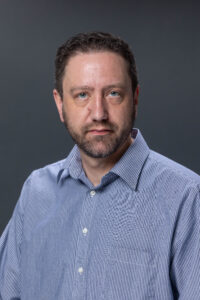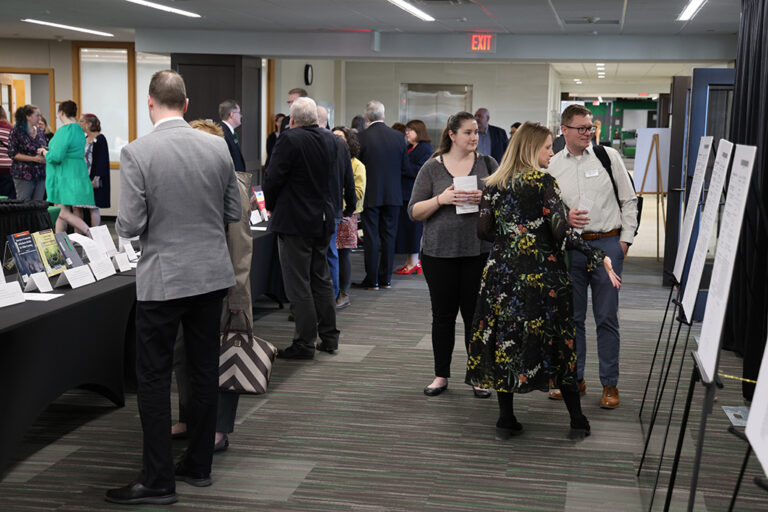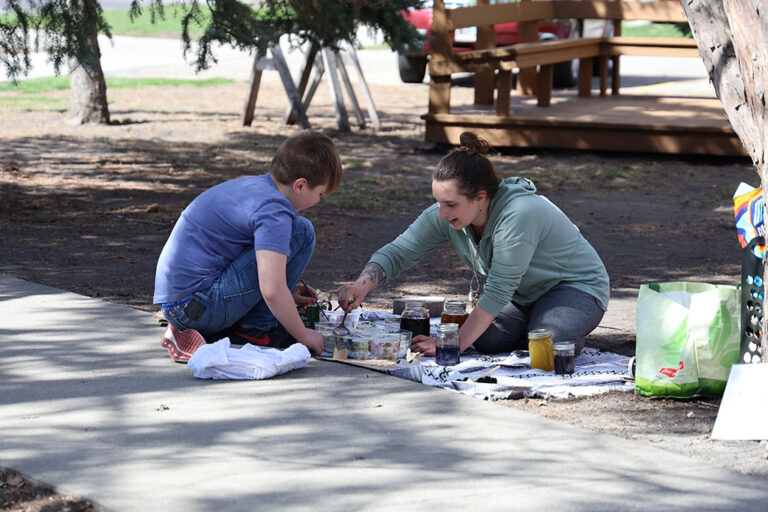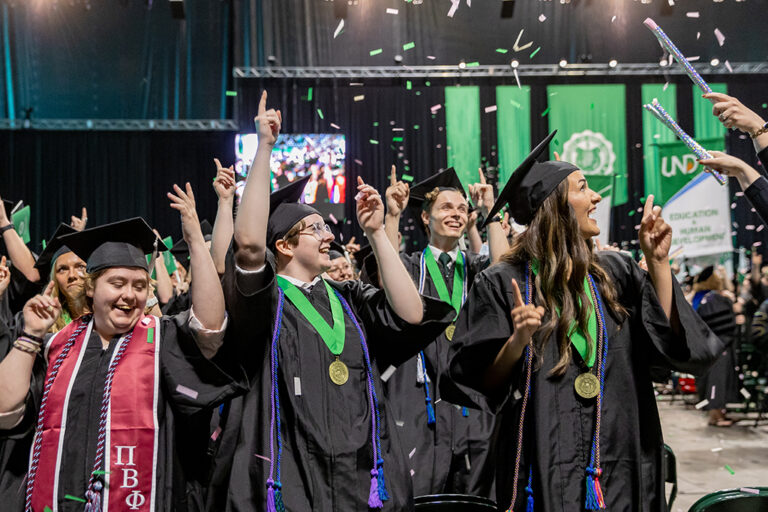Obstacles to education were made to be overcome
At a Black Student Association event, UND panelists talk about the challenges they faced while earning their degrees

At a UND discussion on the obstacles people encountered while seeking a college education, among the obstacles listed were not having enough money for a commuter train ticket and having a family who didn’t support a teen’s decision to come out as gay.
But the panelists who took part in the discussion on Tuesday managed to skirt or surmount those and other obstacles. The panelists, all of them UND administrators or students, want the campus community to know that there are always ways around any boulder in the path to an education.
Art Malloy, UND’s new vice president for student affairs, Jeff Maliskey, director of the UND Pride Center, and Jordan Apienti-Gyapong, a senior and aviation student, were the panelists at “Let’s Talk About It,” a discussion centering on the reasons behind getting an education. The event, organized by the Black Student Association, took place in the Small Ballroom in the Memorial Union.
As a child, Malloy had to get up early to head out to pick vegetables in the fields, a task he thoroughly disliked, he said — and he disliked the snakes that lived in the field even more. It was around the age of 7 that he decided he wanted something else for his life.
“I decided at a very, very young age that whatever I have to do, I am going to do, because this is not the life I want for myself,” Malloy said at the event.
Malloy’s grandfather had a third-grade education and signed important papers with an ‘X,’ Malloy said. But Grandpa was a very intelligent man who repaired cars and other machinery. Malloy said he always wondered what his grandfather could have achieved, how his life would have been different, had he had the chance to complete an education.
Malloy’s mother, meanwhile, supported Malloy’s wanting to continue into higher education and worked to help her son. After a stint in community college, Malloy went on to a four-year university where he became a Resident Assistant, to work to help pay for college. It was a job he’d never forget, and one that he credits with helping him achieve many milestones in his career, by learning what it meant to help other people — very much including people who don’t think and look like him.
The latter is an idea he said he strives to instill in students, because it adds value to and is a part of a complete education.
“Actually take the time to engage and listen, and you’ll probably find that there are going to be some things that you hear that are going to enrich your life and change it in a very, very meaningful way,” Malloy said. “It was that one job as an RA that ended up propelling my career to where I am today.”
Maliskey grew up in poverty in rural Michigan, in a culture where young people were assumed to go to work at age 14. The money he earned was used to help his family, he said. It was a situation where higher education was not in the forefront of many conversations.
That changed at age 16, when Maliskey came out to his family as being gay. The revelation led to his having to leave home. Maliskey crashed where he could, and couch surfed with people who could give him a night’s shelter. He saw education as a way out, a way he could keep going.
Not having a legal guardian proved to be another challenge when Maliskey applied to a community college in Michigan. There was no one to sign his application for student aid. Nevertheless, he earned an associate’s degree there with the help of scholarships, and moved on to earn bachelor’s and master’s degrees. Most recently, he earned his doctorate at UND.
“Even though I’ve experienced a lot of hardship, it was the education that got me going,” Maliskey said. “I needed that degree to advance myself.”
Maliskey’s experiences showed him the meaning and importance of work in diversity, equity and inclusion on a university campus. He now spends time working in those areas, trying to tear down barriers to a university education.
Apienti-Gyapong’s story started where he grew up: in a town north of New York City. In high school, he wanted to attend a five-day event set up by the Organization of Black Aerospace Professionals and hosted by Jet Blue Headquarters.
Apienti-Gyapong got his mother to sign the permission slip for the event, but then realized that she couldn’t drop him off because she had to work. With no ride, he had to come up with another way to get there.
Which meant gathering up the small amount of cash and coins that the then-15-year-old had saved, and sneaking out of the house the morning of the event. He took a series of buses, trains and shuttles to the conference. He made it but was late.
“You can’t do this in the airlines!” he was told by a Jet Blue captain at the event.
But the OBAP conference sealed the deal for Apienti-Gyapong. He went up in an airplane and learned about the career of a pilot. He also met a UND alum who told him about the University, which resulted in a subsequent campus visit.
After enrolling at UND, Apienti-Gyapong helped launch an OBAP chapter at UND. For his leadership, he was awarded the University’s Dr. Martin Luther King Jr. Social Justice Award in 2022.
But getting back to the Jet Blue Headquarters event, Apienti-Gyapong’s grandmother helped, as she gave him enough money to stay until the event’s close. But the teenager still had to get home, and he had watched his stash of money dwindle till it was barely a few coins.
So, he bought a ticket for children ages 12 and under, and got his final train home. He responded in a falsetto “Yes!” when the conductor asked if he was really 12.



